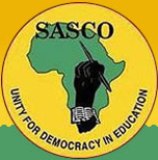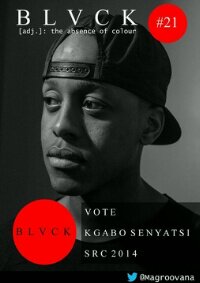
While Brazil has opened a platform for us to celebrate “The World(s) Cup” and affording us the opportunity to view superb football; it has happened in recent years however that our beloved national team (Bafana Bafana) has failed to perform to our expectations. They have failed badly to qualify and I must say it stands to reason that the matter could be deeply rooted and this piece aims to address just that, the deeper issues.
Perhaps I understand the basis, however, the approach that football federations are using in South Africa to recruit players may be a point of concern. There is a notion of searching for talent from grass root level in SA .i.e. recruiting from rural areas and dusty townships. This is a great initiative and yes these places are full of what is referred to as raw talent. It is always fantastic to watch these young stars roll the ball and do the “tsamayas and shibobos” which make us unique as a soccer loving nation.
It is further remarkable seeing the same young stars perform at PSL and national level or even securing deals overseas. We have seen it with many of our own legends such as Lucas Radebe, Phil Masinga, Mark Fish, Bennie McCarthy, the late Ntuka to mention a few flourishing overseas and flying our flag high.
This is all fantastic however there is a “but” in the mist of all this and I will address it later. Why is it that our national team fail to perform against other nations? Our Sports Minister Fikile Mbalula has recently slammed Bafana Bafana for their bad performance against Nigeria during the 2014 African National Championship. He said and I wonder how many of you agree that “they are a bunch of losers, who don’t have any respect for this country and don’t have any respect for anybody”. He further shared that “sometimes you need to stand and fight for your country and your pride”. My question is how many South Africans share these same sentiments? Well I certainly do but the truth is it’s not their fault and I will elaborate why a bit later.
Legends such as Jomo Sono played a leading role in the 1980s in discovering and developing new football talent, especially from rural areas. This later became a trend as some of his recruits like Helman Mkhalele and Sizwe Motaung made it to the national team and later played at Europeans clubs.
This continued to be a practice as we have seen with the recent Nedbank “Ke Yona Cup” which said that they “won’t limit where the players come from, whether taxi drivers or spaza owners, young or old, who want to take part in these trials, (they) are all welcome”. Nedbank claims it wants to nurture talent through this team and give opportunity to the players who didn’t have the chance to play professional (football) to shine. They further claim that “Ke Yona” team is one of its kind and that they want everyone to support them and the initiative.
Well guess what? I don’t support this Nedbank initiative despite their positive intentions and I am of the opinion that it is programs such as these that create some kind of dependency and impoverished people eventually give up on uplifting themselves but wait for such opportunities. Programs such as these and the approach that football federations in South Africa take in searching from grass root levels leave us less competitive towards our counter-parts. How is that possible you may ask? I will address that question right below.
Have you ever wondered why Bafana Bafana always performs so badly despite the state of the art facilities and the support they get? Yes, SA has the best football facilities with over 10 newly build stadiums, Soccer City being one of the best in the world. The 2010 Fifa World Cup really produced great lasting legacies putting South Africa on the map and yet our national team fails badly. Bafana Bafana gets incentivized arguably more than any other African team out there and yet they fail us and themselves.
My response to all of these concerns and questions is that it’s not Bafana Bafana’s fault but that of the football federations in SA. My contention is that it’s all psychological; the approach that Jomo Sono, Sporo Mangena and other facilitators use to recruit is a “cancer” and slowly and surely destroys and eats our players. There is really no correct method to use but my argument is that the current one certainly doesn’t drive us too far.
All I am saying is; players should “qualify” to wear the national jersey and not “picked”, they should not be picked from dusty roads at a tender age, put into development teams and before they realise they are in the PSL and a short while later in the national squad. I am of the view that the method is not feasible and it does not deliver mentally prepared players to compete with people that they have always idolised playing in European leagues. It is a different story to be able to have the skill to play and another to be mentally fit to use the skill effectively. As a result I am of the view that a combination of skill and the right mental attitude is what is required to lead our national team in the right direction and to secure victory.
Apartheid left a legacy that has left certain people marginalised and impoverished. These are the same individuals whom the current recruitment process purely considers. How do you then expect them to be in par with their counterparts, how do you expect them to excel internationally while they still have challenges of emancipating their minds and those of the ones around them? These are the people who are mainly faced with challenges of broken societies that they originate from; it is another challenge to expect them to be ready to take up the challenge of making sure that they defend our country with pride and determination. I am of the view that it’s unfair for us to put so much expectation on them.
This leads to an issue of access to resources, in South African terms, access to resources is an enormous issue and it leads to dialectic material conditions which in Karl Max’s view is a way of understanding reality; whether thoughts, emotions, or the material world. Unfortunately it is these individuals who still battle to find themselves in the material world and hence not prepared to take up responsibility or positions that are more demanding. In that respect, how do we expect them to flourish in their duties as national players? There are always exceptions in life and truth is there are quite a number of them who can still make it out there despite their background; Brazilian players are a good example.
As I have argued previously, our team needs to “qualify” (been the operative word),e.g. like it is a standard requirement for a high school learner to obtain good grades to gain access to university, likewise there should be some level of competency with our players to allow them to compete at such a high level overseas. However all that should start at home, PLS and from other local football structures.
Here is a model that I propose; SA universities and colleges have football teams and most of them compete on intervarsity challenges. My argument is that these students have already passed the “means test”; I believe their level of education gains them an advantage to psychologically manage the responsibility given to our national team. Their experience helps them to negotiate certain challenges in life that an ordinary person “generally” wouldn’t manage. Therefore, let intervarsity leagues or similarly platforms become thresholds for access to PSL and of course the national team.
There are obviously unfavourable results to this because almost all of our football clubs use the current system and one might argue that the new approach would make the PSL ineffective. Also, it may be argued that most international stars come from the same backgrounds as Africa is mainly impoverished. Well here is my argument, if we expect excellence then we should consider a different criterion and in this case if good performance and national pride is paramount then football federations will consider alternative methods in their recruitment stages. Be that as it may, our national team is failing and until the criteria changes, we will remain losers forever. This means we have to make radical decisions even if they are unpopular. The suggested criteria may seem to be stratified or may exclude certain people but if we want to pursue excellence as a country then it’s time to effect change and make sure that players work hard and “qualify” (been the operative word).
By: Thabang Motapanyane














